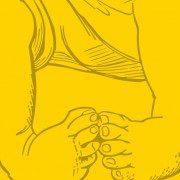The Day I Could No Longer Deny Jesus
Written By Jefferson, Singapore
“Do you want to know about the Truth?” my religion study teacher asked my friend and I one afternoon recess. We were in the teacher’s room, though I can no longer remember why we were there.
“Sure, sir,” I replied.
My teacher directed us to the library and, as soon as we found seats, he asked, “Who is Jesus?”
I answered right away, “He is the Savior.”
“Correct, though incomplete.” He replied.
I glanced at my friend for help, but he looked just as clueless. I did a quick mental review of the materials from the religion study classes I had attended in my Christian school—nothing came up.
Registering our confusion, my teacher told us to take a Bible from the shelf and read Romans 10:9. “If you declare with your mouth, ‘Jesus is Lord,’ and believe in your heart that God raised him from the dead, you will be saved,” we read aloud.
“So, who is Jesus?” our teacher asked again.
The answer was clear; the Lord’s plan that had led me up to that moment however, wasn’t as clear-cut.
Doubting Christianity
Since I was a boy, I had an interest in existential questions. “Who am I? What is the meaning of life? What will happen after I die?” As I grew older, I began searching for answers.
My first stop was Catholicism. When we were little, my parents would teach my younger brother and I about Jesus dying on the cross to save people from sins so that they could enter heaven after they die. They would also take us to the weekly Mass.
However, as a little child, I neither understood about salvation nor enjoyed the Mass. All I knew was that church was dull and ritualistic. I would rather stay at home and watch cartoons than go there. “If salvation means going to the boring Mass every week, I don’t want to be saved,” I thought. After countless complaints and tantrums from my brothers and I, my parents, who were pretty indifferent about religion themselves, decided to stop attending Masses altogether when I was about eight.
My next stop was agnosticism and atheism. By then, I was enrolled in a Christian middle school. However, the behavior of my so-called Christian classmates was not Christ-like at all. To me, it seemed as though Jesus, who claimed to be God, was unable to turn people toward righteousness. So I concluded that Protestantism was as powerless as Catholicism. I started developing my own philosophy—things I believed could help me live a good life—which was greatly influenced by Eastern pantheism and Western secular humanism.
This only lasted for three years. By the time I entered high school, my beliefs had been battered by constant challenges and setbacks. For instance, I used to believe that by sheer willpower I could focus on philosophical things, which I considered to be more worthwhile than the pursuit of fun. Yet, my mind would inevitably wander and I often found myself distracted by entertainment like comics and movies. These repeated occurrences proved that I was incapable of doing any good on my own.
Having been let down by my own philosophy, and, knowing from experience that human ways always lead to disappointment, I turned to the faith I used to despise: Christianity.
Why Christianity? Three years studying it in middle school taught me that it was different from other faiths. Christianity says that I am saved only because God wants to save me. As I began to understand how His love fills and penetrates every corner of His creation, I found answers to my initial objections to Christianity, including that about my “Christian” friends.
For several months I flirted with Christianity. I began praying but did not treat God as God. I also started reading the Bible for interest but did not believe its theological claims.
This continued until I met this religion study teacher, who talked about the end times as described by the Book of Revelation in his first lesson. Having watched a documentary about this a few weeks before, I approached him at the end of the lesson to clarify several things with him. During our brief discussion, his logical answers intrigued me. I had never thought that the Christian theology was a rational one. This led me to several more talks with him about the relationship between faith and reason.
But though the pull to believe in God became stronger, I kept resisting. Though I found it more and more difficult to deny His existence, I did not want my life to be ruled by God. That is, until that fateful question was asked.
“Who is Jesus?”
Struggling with the Truth
If you declare with your mouth, “Jesus is Lord”. . .
“Okay, I can just confess and live pretending that Jesus is not really Lord. I am the lord of myself, after all!” I thought.
. . . and believe in your heart that God raised him from the dead, you will be saved.
I felt like I was cornered. This verse brought me right to the center of Christianity, where I could picture Jesus standing in His glory, very much alive, with His hands and feet still bearing the holes from the crucifixion, His stomach the wound from the spear, His arms spread out toward me, as if calling me back to Him.
My defense mechanism kicked in, my mind trying to argue that this could not be true. Interestingly, every one of my arguments only further supported the claim that Jesus is indeed the Lord. One of my strongest arguments against Christianity was that Jesus was not able to change my friends to live righteously. However, reflecting on my own experience and this verse, I realized that living righteously requires faith: When one believes that Jesus really is the Lord whom God raised from the dead, God’s love will fill and enable him to live a God-glorifying, righteous life.
I began to see that every second of my existence, every single thing I could ever find in this world, points to the existence of God and His sovereignty as the Lord. The fact that He did die and rise again gave me hope that despite having wandered far from God, I can be saved and return to Him. There was no escape. I had to believe.
Looking at my teacher, I found myself saying, “The Lord.”
Living with Jesus as Lord
For the first 15 years of my life, I had lived a miserable joyless life. All my attempts at living “a good life” floundered. Only after my repentance did I feel the joy and peace of surrendering to the Lord who makes known to me the path of life (Psalm 16:11).
Since Jesus is the Lord over creation, no one can claim that he has control over his life. We can choose to either live acknowledging Jesus as Lord or denying it. As the missionary Hudson Taylor once said, “Christ is either Lord of all, or is not Lord at all.” And if we do claim that He is Lord, everything we do ought to point to Him and His glory, even trivial things like cleaning our rooms (1 Corinthians 10:31).
It has been more than six years since I acknowledged Jesus as my Lord. I can say that it has been totally worth it.
Soli Deo gloria.










Leave a Reply
Want to join the discussion?Feel free to contribute!